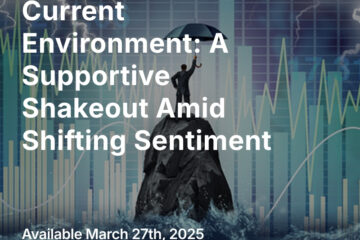It was a head-scratcher for us that Fed Chair Powell indicated in last week’s press conference that he believes the Fed funds rate is near a “neutral” level. Looking across the inflation landscape, that seems a quixotic view and not one with which we agree. We believe the Fed funds rate would need to be at 5% or 6% for some period to approach neutrality, really get inflation under control, and cut off the nascent wage-price spiral that is already underway.
With that said, the Fed’s job is extraordinarily difficult (partly, of course, because of their own error in remaining overly accommodative for so long). Unlike the last period of sharp tightening to crush spiking inflation, the U.S. and global economies are much more highly levered and therefore likely to be more fragile as interest rates rise. The market’s apparent thought — that deteriorating conditions mean a Fed pivot is coming sooner rather than later — may not be wrong.
But if it is right, it suggests that our base-case scenario may indeed come to pass: a relatively shallow recession (such as we may already be in) is interrupted by a Fed pivot — followed in 2023 by a renewed inflation impulse, which requires a more sustained and sharp Fed tightening program to control, and precipitates another recession in quick succession. In short, it may take two back-to-back recessions to get inflation modestly under control… and even then, we believe that inflation will remain elevated (compared to the lowflation regime of the past two decades) for many years to come.
In terms of earnings strength, energy is leadership for now. However, we suspect that the opprobrium still heaped on hydrocarbons will prevent it from taking on an enduring market leadserhip role, even though our “revenge of the real” theme suggests that it deserves that mantle. We can’t think of another industry where, practically speaking, every unit the industry produces is certain to get consumed… and in some cases is already spoken for, paid for, and consumed the moment it is produced. (The global economy operates in such a manner that there is little inventory overhang for energy — to say the least.)
Thanks for listening; we welcome your calls and questions.



